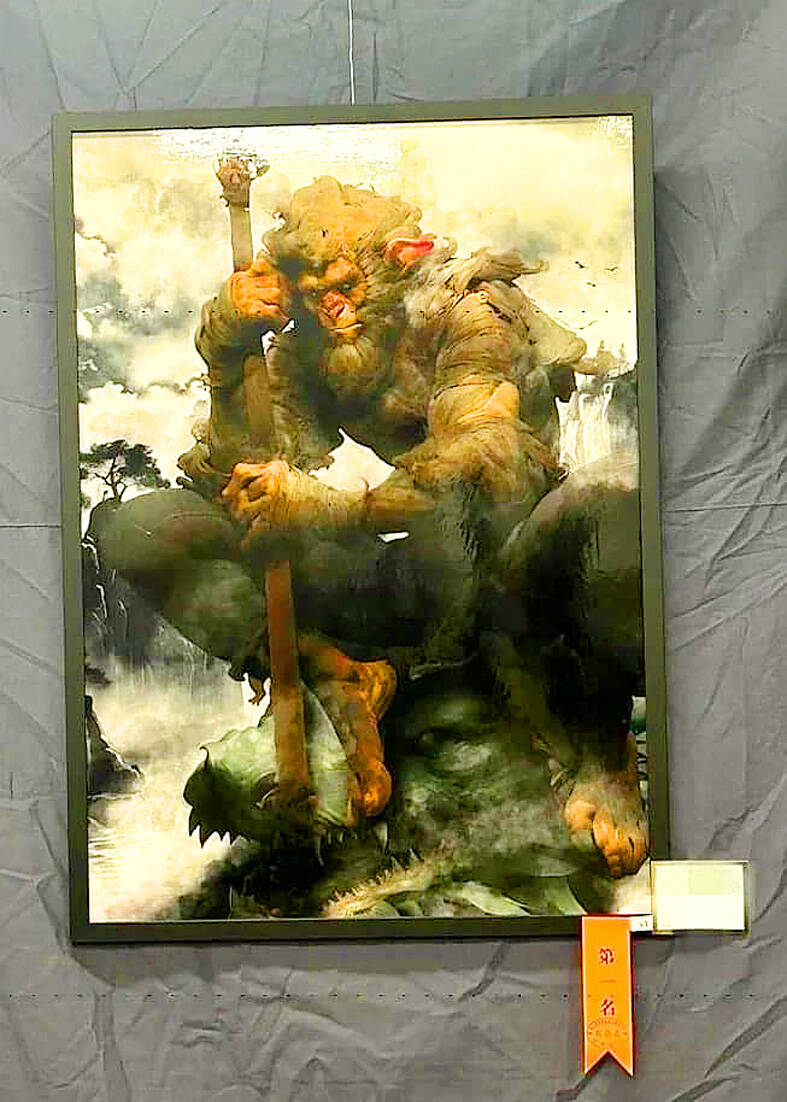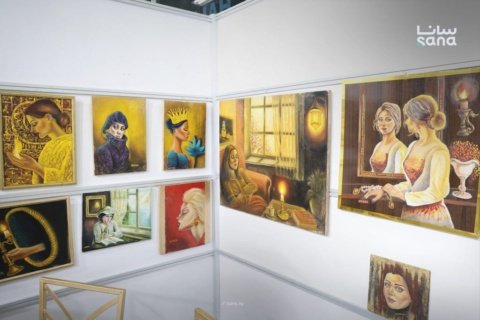RAISED EYEBROWS:
The Monkey King character in the award-winning piece had deformed hands and anatomically incorrect thigh muscles, telltale signs of AI art
-
By Chen Yi-shao
and Jonathan Chin / Staff reporter, with staff writer
and CNA
A New Taipei City high school rescinded a top art prize for a student after Internet sleuths discovered that an image generation tool was used to create the award-winning entry.
Fu Hsin Trade and Arts School, a private school with a renowned commercial art program, held a teacher-student art show on March 25 and April 2 to celebrate the 67th anniversary of its founding.
The top award in the digital art category went to the creation by a student, surnamed Lin (林), titled: Danao Longgong (大鬧龍宮), a work that aroused suspicion from other contestants and Internet users that it might have been generated by artificial intelligence (AI).

Photo: Screen grab from Facebook page
The competition’s rules do not allow the use of image generators.
On Wednesday, a YouTuber known as Boss Kuma published a video on his channel discussing the ethics of AI art, in which he criticized the competition’s judges for failing to spot AI content.
The Monkey King character depicted in the piece had deformed hands and feet, anatomically incorrect thigh muscles, and weird textures in its hair and bandages, which are common signs of AI art, he said.
“This is not just an AI-generated picture but one that has not even been touched up. I do not know what the creator of this submission went to three years of art school for. So pathetic,” he said.
In a Facebook post on Sunday last week, Fu Hsin Trade and Arts School said that following an explanation by Lin and repeated examinations by teachers with a professional specializing in the subject, Lin admitted to misapplying AI.
“The student and his parents have apologized and the awards will be changed according to the scores of the submissions,” it said.
Reports that the whistle-blower has received a major demerit is incorrect, the school added.
New Taipei City Department of Education said that it would emphasize the need for experts on the judging panel of art competitions.
New guidelines and tools for detecting AI art should be used for art shows and competitions, it added.
Schools are additionally reminded of the importance of teacher-student communication and using positive reinforcement instead of punitive discipline, the department said.
Tunghai University College of Fine Arts and Creative Design director Hsu Ho-chieh (許和捷) said that educators in the field of commercial art and design should acknowledge the rise of AI and change the skills they teach students to use accordingly.
Solid training in basic skills, and an eye for aesthetics and innovation are as important as ever, since AI art generators cannot be used effectively if the creator is unable to see and correct mistakes, he said.
Copyright must be understood and respected, as AI use poses significant risks of infringement, he added.
Educational institutions should be careful in writing competition guidelines on tools and media to ensure students understand the assignment, National Taichung University of Education professor Lu Shih-yun (盧詩韻) said.
Schools should do a better job of integrating AI art as a tool in the creative process and re-evaluate their definition of art to include the utilization of new technology, she said, adding that the use of image generation tools should be accepted as an art form.
The point is not to prevent students from using AI to make art but to teach them how to use it correctly, National Chiayi University Department of Visual Art chair Hsieh Chih-chang (謝其昌) said.
Creators can and should make use of AI so long as the work they created is unique and distinctly theirs, he added.
Comments will be moderated. Keep comments relevant to the article. Remarks containing abusive and obscene language, personal attacks of any kind or promotion will be removed and the user banned. Final decision will be at the discretion of the Taipei Times.


